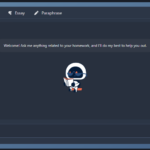You're probably wondering how AI is revolutionizing SEO reporting.
Well, it's no secret that AI's capabilities are transforming the way we analyze and interpret SEO data. Imagine making smarter, data-driven decisions and streamlining your SEO reporting process.
Sounds great, doesn't it?
Let's dive in and explore how AI is reshaping the SEO landscape.
Understanding AI in SEO Reporting
Often, you don't fully realize how artificial intelligence (AI) is revolutionizing SEO reporting. But it's happening, and it's changing the game in significant ways. In the past, you'd have to manually comb through heaps of data, painstakingly analyzing keywords, backlinks, and web traffic trends. These days, AI's sophisticated algorithms have taken over, doing the heavy lifting and delivering key insights at lightning speed.
The beauty of AI lies in its ability to learn and adapt. It can analyze patterns and trends, predicting future outcomes with uncanny accuracy. You're no longer just reacting to SEO data; you're proactively shaping your strategy based on AI's forecasts. It's like having a crystal ball, one that's constantly learning and getting better at its predictions.
Moreover, AI doesn't just save you time; it also improves the quality of your SEO reporting. By eliminating human error, AI ensures that your data is accurate and reliable. You're not second-guessing your findings or worrying about mistakes. AI's got your back, providing you with data you can trust.
But don't be intimidated. Embracing AI in SEO reporting doesn't mean you need to be a tech whiz. Most SEO platforms have intuitive AI features built in, making it easy for you to harness the power of AI. You're not alone in this journey. There's a wealth of resources and tools out there to help you navigate the AI landscape.
In short, AI is transforming SEO reporting, and you're at the heart of it. Welcome to the future of SEO.
How AI Transforms SEO Analysis
You might wonder how AI is specifically transforming SEO analysis, so let's delve into that now.
AI streamlines the process of SEO analysis, making it more efficient and accurate. It eliminates the guesswork and provides you with data-driven insights to boost your SEO strategy.
Firstly, AI excels in data analysis. It can sift through immense amounts of data in a fraction of the time it'd take a human. It's not just about speed, though. AI can identify patterns and correlations that are often missed by human analysts. This means you're not just getting your analysis faster, you're also getting a more accurate and comprehensive view of your SEO performance.
Secondly, AI automates repetitive tasks. Keyword research, competitor analysis, backlink tracking – these are all tasks that can be automated by AI. This frees up your time and allows you to focus on implementing the insights gained from the analysis.
Moreover, AI can predict future trends. With its machine learning capabilities, AI can analyze past data and predict future SEO trends. This allows you to stay one step ahead of your competitors and adapt your SEO strategy accordingly.
Last but not least, AI personalizes your SEO strategy. It can analyze user behavior and tailor your content and keywords to match the preferences of your target audience.
The Influence of AI on SEO Tools
In the world of SEO, AI is significantly reshaping the tools you're using. It's not just about analyzing data anymore; it's about understanding and predicting user behavior in ways that were once impossible. AI-driven SEO tools are providing insights based on user behavior patterns, making your strategy more targeted and efficient.
AI integration has greatly enhanced tools like Google's RankBrain, an AI system that's part of the search engine's core algorithm. It understands and interprets complex search queries, providing more relevant search results. It's making your work easier by deciphering the user's intent behind a search query, even if it's not explicitly stated.
AI has also transformed keyword research tools. They can now analyze and predict trends, helping you to stay ahead of the curve. You're no longer relying on guesswork or historical data. AI is helping you to spot emerging keyword trends in real-time, which means you're catching the wave earlier.
Automation is another area where AI is making a huge impact. AI-powered tools are streamlining tedious tasks such as backlink analysis, content optimization, and technical SEO audits. You're saving time and resources, which you can then reinvest into more strategic aspects of your SEO campaign.
In essence, AI isn't just influencing SEO tools; it's revolutionizing them. It's giving you a more comprehensive and accurate toolset, empowering you to make smarter, data-driven decisions. It's not a matter of if you'll embrace AI in your SEO tools, but when. The future of SEO is intelligent, predictive, and automated, and AI is the driving force behind this transformation.
AI's Role in Streamlining SEO Reporting
Harnessing AI's potential, your SEO reporting process can be significantly streamlined and optimized. Artificial Intelligence, with its ability to analyze vast amounts of data quickly and accurately, can automate tedious tasks, freeing up your time to focus on strategic planning.
Imagine this: you're managing multiple websites, each with its own set of keywords. Tracking and assessing their ranking performance can be a daunting task. With AI, you can automate the reporting process. The system not only gathers and analyzes ranking data but also generates insightful reports. It'll save you hours of manual work and help you understand your site's performance at a glance.
Moreover, AI can provide predictive insights. By analyzing historical data and current trends, it can forecast future performance. This allows you to make proactive decisions, tweaking your SEO strategies before any potential downturn in rankings.
AI can also identify anomalies in your SEO data that might signal an issue. If there's a sudden drop in traffic or rankings, the system will notify you instantly. You won't have to wait for your weekly or monthly report to address the problem.
Lastly, AI brings personalization to SEO reporting. You can customize your reports according to your needs, focusing on the metrics that matter most to you.
AI and Improved SEO Decision-Making
With the aid of AI, your decision-making process in SEO can be significantly enhanced. AI tools can analyze vast amounts of data faster and more accurately than a human. They can identify patterns and trends that you might miss. This allows you to make data-driven decisions that can improve your SEO strategy.
For instance, AI can predict which keywords will perform well in the future. It can also suggest new keywords that you haven't considered. This way, you're not just reacting to what's currently happening in SEO, but proactively making decisions based on future predictions.
AI can also improve your on-page SEO. It can analyze your content and suggest improvements. For example, it can identify areas where you could use more relevant keywords or where you need to improve readability. It can even suggest topics for future content based on what's trending in your industry.
Moreover, AI can help you understand your competitors better. It can analyze their SEO strategies and identify what's working for them. This gives you valuable insights that you can use to refine your own strategy.
But, it's not just about making decisions. AI can also execute some of these decisions. For example, it can automatically optimize your meta tags or schedule social media posts at the best times.
Case Studies: AI in SEO Reporting
Now, let's delve into a few case studies that illustrate how AI has revolutionized SEO reporting.
Consider the case of CanIRank, an SEO software powered by machine learning. This tool not only identifies SEO opportunities but also provides detailed, step-by-step instructions on how to take advantage of them. The result? A significant increase in organic traffic and higher search engine rankings for their clients.
Next, take a look at BrightEdge, an AI-driven SEO platform. It uses deep learning to provide real-time recommendations for content optimization. Thanks to BrightEdge's AI, businesses have reported an average 60% increase in organic traffic.
But AI's influence isn't just limited to software. Companies like Airbnb have also harnessed AI's power in their SEO strategy. By developing an AI-powered keyword prediction model, Airbnb could optimize their web pages more effectively, leading to a substantial increase in search visibility.
Now, these case studies aren't just isolated instances. They're part of a growing trend of businesses leveraging AI to enhance their SEO reporting. You too can reap these benefits. Implementing AI into your SEO strategy can provide you with in-depth insights, save you time on analysis, and ultimately drive more traffic to your site.
Future Perspectives: AI and SEO Reporting
As you look towards the future, it's crucial that you understand how AI will continue to shape SEO reporting. Its transformative role isn't just a passing trend; it's a reality that's here to stay and will no doubt evolve further.
With AI, you'll be able to analyze massive amounts of data, spot patterns, predict trends, and make more informed decisions.
One key area where AI is set to have a significant impact is in predictive analytics. You'll be able to anticipate changes in search engine algorithms, predict user behavior, and adjust your SEO strategies accordingly. This ability to be proactive rather than reactive will give you a distinct competitive advantage.
AI will also revolutionize how you interpret and present data. Instead of poring over spreadsheets, AI can generate clear, concise, and visually appealing reports. You'll understand your data at a glance, making it easier to share insights with your team or clients.
Moreover, AI will automate many routine tasks, freeing up your time to focus on strategy and creativity. It'll perform keyword research, monitor rankings, and identify SEO opportunities with speed and accuracy that humans can't match.
But remember, while AI is a powerful tool, it doesn't replace the human touch. You'll still need to apply your expertise, intuition, and understanding of your audience. AI isn't about making your job obsolete; it's about making your job easier and more effective.
Frequently Asked Questions
What Are the Potential Risks or Drawbacks of Using AI in SEO Reporting?
You're probably wondering about the risks or drawbacks of using AI in SEO reporting.
While AI can streamline processes and improve accuracy, there are potential pitfalls. It might miss nuances that a human wouldn't, or make decisions based on incomplete data.
Also, there's the risk of over-reliance on AI, neglecting the human touch and creativity that's often needed in SEO strategies.
Lastly, privacy concerns can arise with the use of AI.
How Can Someone With Little Technical Knowledge Use AI for SEO Reporting?
Even with minimal technical knowledge, you can still use AI for SEO reporting. Many SEO tools offer user-friendly interfaces with AI integration. You don't need to understand the complex algorithms; the AI does the heavy lifting.
You input your data or connect your website, and the tool provides insights and recommendations. It's about learning to navigate these tools, not understanding the AI behind them.
Are There Any Specific Industries or Sectors That Benefit More From AI in SEO Reporting?
You're asking if certain industries benefit more from AI in SEO reporting. Absolutely!
Industries with vast amounts of data like e-commerce, real estate, and healthcare see significant advantages. AI analyzes and interprets large data sets quickly, providing valuable SEO insights.
It's also beneficial in competitive sectors where ranking is fierce. So, you're not restricted by your industry when it comes to harnessing the power of AI for SEO reporting.
What Are the Cost Implications of Integrating AI Into SEO Reporting?
Integrating AI into your SEO reporting may initially increase costs due to the necessity of acquiring advanced software or hiring experts. However, you'll soon see that the investment can yield significant savings.
AI streamlines data analysis, reducing the time spent on reporting. It can also predict trends, helping you optimize your strategy and avoid costly mistakes.
Do Companies Need to TrAIn Their Employees to Use AI for SEO Reporting or Is It User-Friendly?
You're asking if companies need to train their employees in using AI for SEO reporting or if it's user-friendly. Generally, AI tools are designed to be user-friendly. However, some training may be beneficial to fully leverage their potential.
It's not about mastering AI, but understanding how it can enhance SEO reporting. So, yes, a basic understanding is helpful, but you don't need to be an AI expert to harness its power in SEO reporting.
Conclusion
So, you see, AI isn't just transforming SEO reporting, it's revolutionizing it. It's making analysis more precise, streamlining reporting, and improving decision-making.
As we've seen in our case studies, the results are impressive. And looking ahead, the future of AI in SEO reporting is more than promising.
It's an exciting time to be in SEO, wouldn't you agree?
















